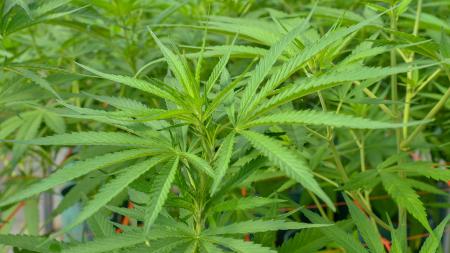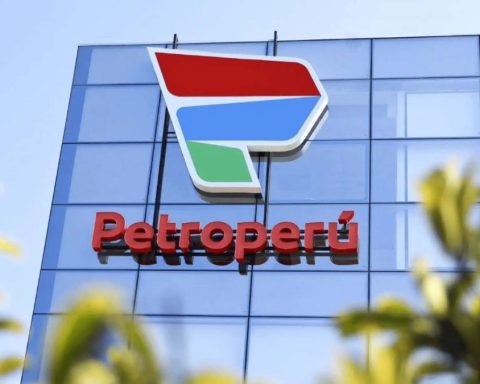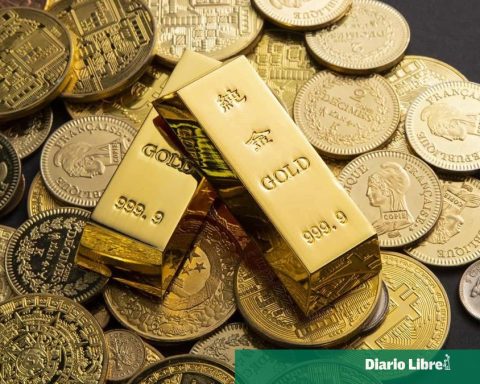The hemp plant, from the cannabis family, is presented as a new ally of the environment in the fight against plastic pollution in the world, since it the use of its fibers as reinforcement in composite materials could reduce the use of plastics in industries by up to 40%specialists explained.
“Obtaining composite materials by adding hemp fiber to traditional matrices such as polypropylene can reduce the plastic content between 30 and 40%“María Evangelina Vallejos, a researcher at Conicet and the Institute of Materials of Misiones (IMAM) told Télam.
Vallejos, who carried out his doctoral thesis on the “Comprehensive use of Cannabis sativa as a reinforcing/filling material for polypropylene”, highlighted that “hemp has advantages over other fibers of plant origin because they are long, rigid and have a high cellulose content , which gives it strength. When mixed with a polymer, it improves strength and rigidity compared to plastic alone.”
Hemp, like the “marijuana” plant, belongs to the species Cannabis Sativa, but unlike this one, it only contains low amounts of the psychoactive substance. There are records that it was used by mankind for 10,000 years to make yarn and textiles.
In our country, Manuel Belgrano was a recognized promoter of this plant for local development thanks to the industrial and commercial benefits he learned in his studies in Europe.
Nevertheless, in Argentina its production or commercialization is criminally prohibited, although this year Through Law 27669 and Decree 266/2022, the Regulatory Agency for the Hemp Industry and Medicinal Cannabis was createdwhich establishes the guidelines for the development of the chain of production and commercialization of the cannabis plant, its seeds and its derived products.
According to the report presented in May 2022 by the Ministry of Productive Development, currently more than 50 countries have made progress in some type of legalization for cannabis for industrial and/or medicinal use.
Food products, cosmetics, paper or biofuels can be obtained from hemp, however one of the lines that are currently being researched the most is the manufacture of biodegradable plastics.
Mariano Percivale, an industrial designer and one of the partners of Chanvre, a company that has been manufacturing hemp glasses since 2014 and exporting to several countries, told Télam that hemp “is a magical solution” to replace plastics.
“We make 73% biopolymers based on hemp fibers. We want to do it even better, more demanding, to be able to control the use of polymers more. It is a raw material that can replace plastic, but we need more research,” he said.
According to the UN, plastic represents 85% of the waste that reaches the oceans and by 2040, the volumes of this material that will flow into the sea will almost triple, with an annual quantity of between 23 and 37 million tons.
“We need to farm on a large scale. It generates a lot of raw material per hectare, has a smaller water footprint, the crop is rotated (heals the soil) and has a negative carbon footprint, that is, it absorbs more than it produces,” Percivale said.
Among the advances that have been made, there is the creation this year of the Technological Base Company (EBT) Cannabis CONICETwhich seeks to generate knowledge and technological development of industrial hemp and its derivatives, generating quality standards and innovation at all stages, from cultivation, production, human resources and the economic and social value of the industry.
According to specialists, In addition to the environmental issue, hemp is presented as an economic opportunity for the country.
“This mixture of plastic and fiber can be made today in the plastic industries, reducing the grade of polymers, and that lowers costs because today all the polymers we use in Argentina are imported,” Vallejos explained.
“This is going to be a paradigmatic change due to the variability of uses. It is going to generate a lot of work. The path of development is in manufacturing, with this we can create an industry and help the country,” said Percivale.
This economic vision has already begun to take flight since in September in San Luis the first Industrial Hemp Expo of Argentina was held, which brought together rural and industrial producers, suppliers of machinery, inputs, entrepreneurs and the most important public and private institutions in Argentina. and of the world.
“Today we have two problems in the industry: production, because there is no machinery to process the plant and obtain the fibers, and the lack of demand, because the population does not know what hemp is and what can be produced, so today it is not profitable,” explained Percivale.
In this regard, Vallejos assured that more and more people know about hemp because “a cultural change is taking place due to the fact that there is more and better quality information about the plant.”
“Before it was confusing, as if it were all the same. The plant has been stigmatized by only one of its components. It has many advantages and benefits”said the researcher.
“It has all the requirements to be the raw material of the future. We have to see how to adapt this raw material to the national industry. Hemp comes to close the gap between development and environmentalism: they are both inside,” concluded Percivale.


















